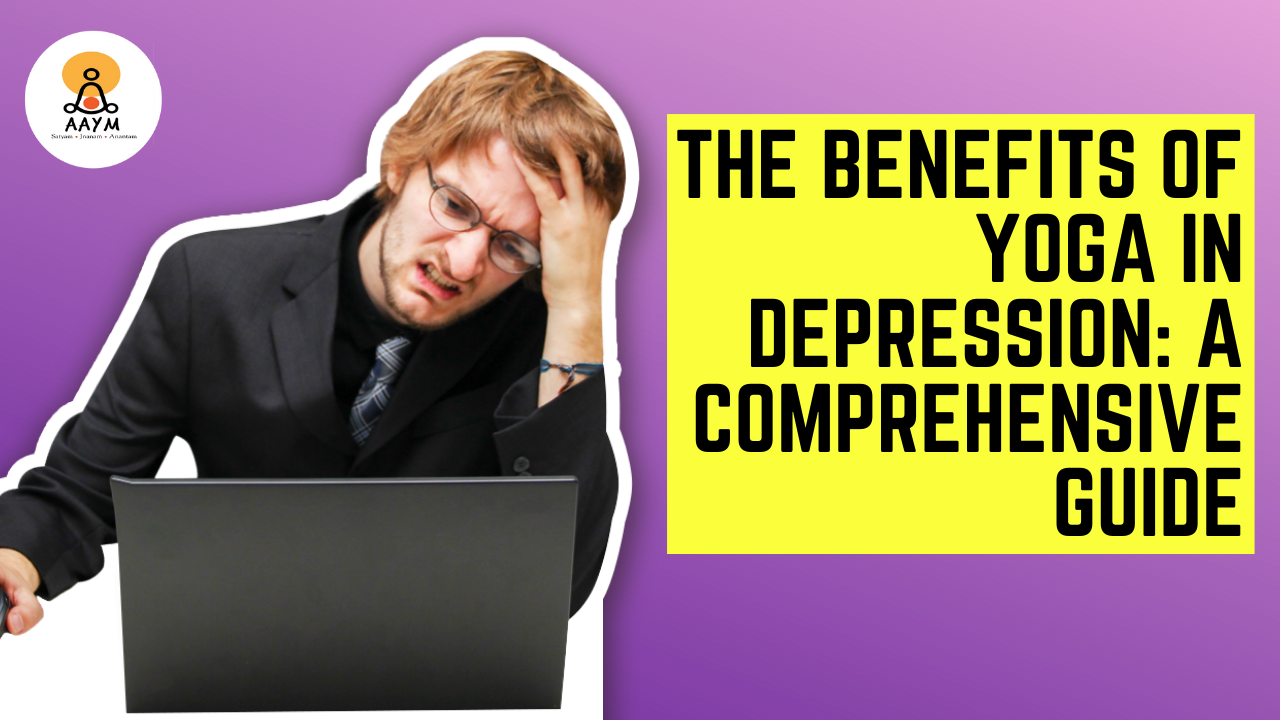The Intersection of Yoga and Mental Health
In an era where mental health challenges are on the rise, depression stands out as a particularly pervasive issue. It’s not just a fleeting emotion but a complex condition that affects millions globally, impacting their daily lives, relationships, and overall well-being. Amidst the myriad of treatments available, from counseling to medication, yoga emerges as a beacon of hope.
Yoga, an ancient practice rooted in Indian philosophy, offers a holistic approach to well-being. Unlike treatments that focus solely on the mind or the body, yoga seeks to harmonize the two, recognizing the intricate connection between physical health and mental equilibrium. This discipline, which encompasses a range of postures, breathing exercises, and meditation techniques, has been practiced for millennia, not just as a form of physical exercise, but as a pathway to spiritual growth and mental clarity.
The beauty of yoga lies in its adaptability and inclusivity. Whether you’re a seasoned practitioner or a novice, yoga offers something for everyone. For those grappling with depression, certain yoga postures can stimulate the body’s energy centers, promoting the release of endorphins, the body’s natural mood elevators. Breathing exercises, or pranayama, can help regulate the nervous system, shifting the balance from the stress-induced sympathetic mode to the calming parasympathetic mode. Meditation, a cornerstone of yoga, fosters mindfulness, allowing individuals to anchor themselves in the present moment, reducing rumination and anxiety.
But the intersection of yoga and mental health goes beyond the physiological. On a deeper level, yoga fosters a sense of community. Group classes provide a space for connection, reducing feelings of isolation often associated with depression. Moreover, the philosophical teachings of yoga emphasize self-compassion, acceptance, and non-judgment, principles that can be transformative for those battling negative self-perceptions.
In a world that often feels chaotic, yoga offers a sanctuary. It’s a space where individuals can reconnect with themselves, shedding the layers of societal expectations, pressures, and self-imposed limitations. For many, it’s not just a practice but a way of life, a guiding philosophy that paves the way for mental resilience, clarity, and peace.
As research continues to delve into the therapeutic potential of yoga for depression, one thing becomes clear: the ancient wisdom of yoga holds profound relevance in today’s modern world. It’s a testament to the timeless nature of this practice and its unparalleled ability to heal, rejuvenate, and inspire.
Understanding Depression: More Than Just Sadness
Depression is a complex mental health disorder, often misunderstood as mere sadness. It encompasses a range of symptoms, from profound melancholy to feelings of worthlessness and even physical ailments. The intricate web of causes, from genetic factors to environmental triggers, makes it a global concern. The World Health Organization identifies depression as a leading cause of disability. Given this backdrop, the potential of yoga as a therapeutic tool becomes even more significant. The British Journal of Sports Medicine underscores this, highlighting the efficacy of physically active yoga in alleviating depressive symptoms.
Yoga: An Ancient Practice with Modern Implications
Yoga’s journey, from ancient ashrams in India to modern studios worldwide, is a testament to its enduring relevance. Beyond physical postures, yoga emphasizes a balance between body, mind, and spirit. The WebMD review underscores the tangible benefits of yoga, noting significant reductions in depressive symptoms among practitioners.
Yoga vs. Traditional Therapies: A Comparative Analysis
The realm of mental health treatment is vast and varied, with each approach offering its unique benefits. Traditional therapies, such as counseling and medication, have been the cornerstone of depression management for decades. However, complementary therapies like yoga are gaining traction, promising holistic healing. This section delves into a comparative analysis of yoga and traditional therapies, highlighting their respective advantages and potential synergies.
Traditional Therapies: The Established Path
- Counseling and Psychotherapy: Talk therapies, including cognitive-behavioral therapy (CBT) and interpersonal therapy (IPT), provide individuals with a safe space to explore their emotions, identify negative thought patterns, and develop coping strategies. These therapies are evidence-based and have been refined over years of clinical practice and research.
- Medication: Antidepressants, such as selective serotonin reuptake inhibitors (SSRIs) and serotonin-norepinephrine reuptake inhibitors (SNRIs), regulate neurotransmitters in the brain, alleviating depressive symptoms. For many, they offer relief, especially when combined with psychotherapy.
Yoga: The Holistic Alternative
Yoga, an ancient practice rooted in Indian philosophy, offers more than just physical postures. It’s a holistic approach that integrates body, mind, and spirit. Here’s how yoga stands out:
- Person-Centered Approach: Unlike one-size-fits-all treatments, yoga allows individuals to choose practices that resonate with their unique needs. Whether it’s a calming Yin yoga session or an invigorating Vinyasa flow, individuals can tailor their practice.
- Holistic Healing: Yoga doesn’t just address the mind or the body in isolation. Through asanas (postures), pranayama (breathing exercises), and dhyana (meditation), it offers comprehensive healing. This holistic approach ensures that individuals address the root causes of their depression, not just the symptoms.
- Empowerment: Yoga empowers individuals to take charge of their healing journey. The consistent practice fosters self-awareness, resilience, and a sense of agency, crucial for long-term mental well-being.
Comparative Analysis: Synergies and Distinctions
While both traditional therapies and yoga offer significant benefits, they can also complement each other:
- Integrated Healing: Combining talk therapy with yoga can enhance the therapeutic process. For instance, insights gained during counseling can be further explored and integrated during yoga practice.
- Medication and Yoga: While medication addresses neurochemical imbalances, yoga offers emotional and physical regulation. Together, they can provide a comprehensive treatment plan.
- Accessibility: While traditional therapies might require appointments and can sometimes be cost-prohibitive, yoga offers flexibility. With countless online resources and community classes, it’s accessible to a broader audience.
- Accessibility: While traditional therapies might require appointments and can sometimes be cost-prohibitive, yoga offers flexibility. With countless online resources and community classes, it’s accessible to a broader audience.
The Broader Impact: Yoga for Medical Conditions
Beyond depression, yoga’s therapeutic potential extends to various medical conditions. Chronic pain, anxiety, cardiovascular ailments, and even digestive disorders—yoga offers holistic solutions. Organizations like the American Academy for Yoga in Medicine (AAYM) champion this integrative approach. Their extensive resources, from webinars to blogs, provide insights, emphasizing yoga’s unparalleled benefits.
Embracing Yoga for Holistic Healing
In a world where mental health challenges are rampant, yoga offers a beacon of hope. Its holistic approach, encompassing physical postures, breathwork, and meditation, promises comprehensive healing. As we navigate the complexities of modern life, integrating ancient wisdom can pave the path to true well-being.

